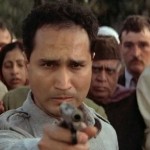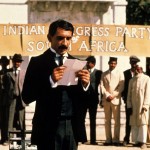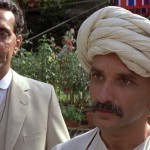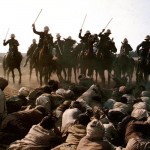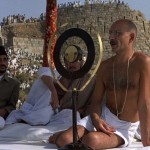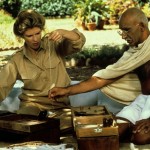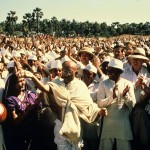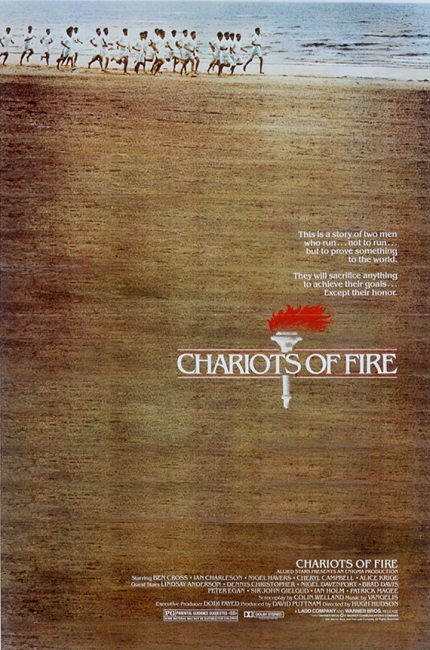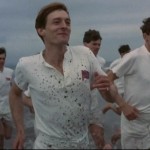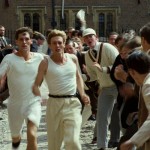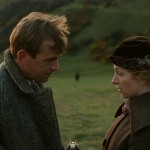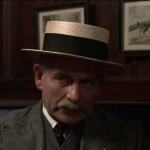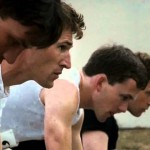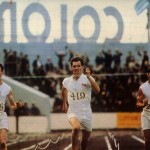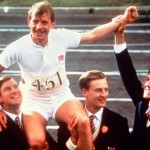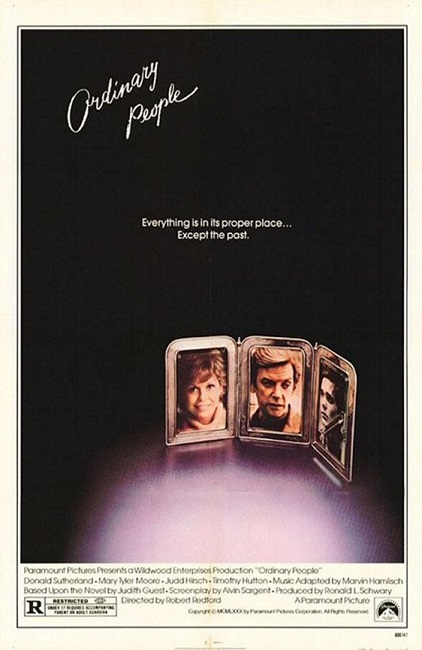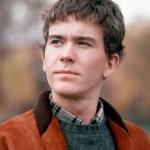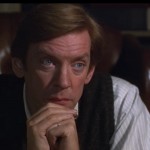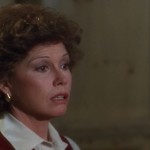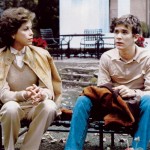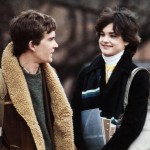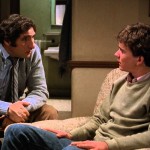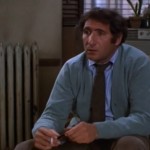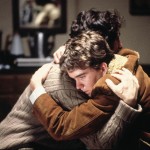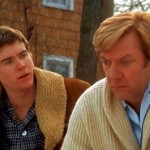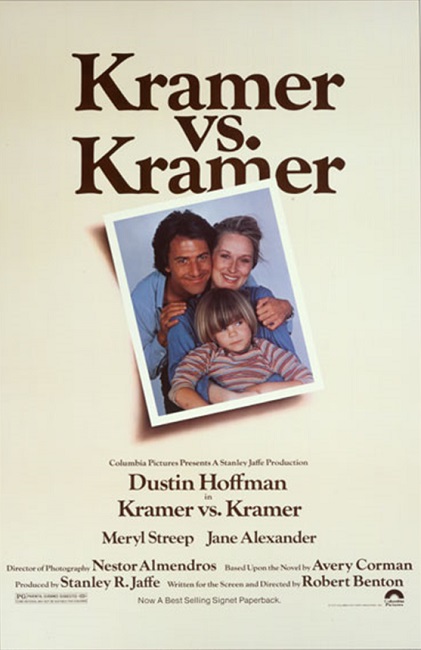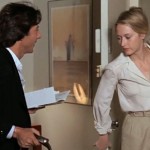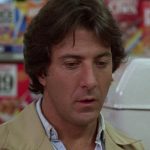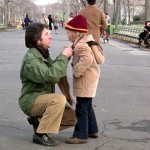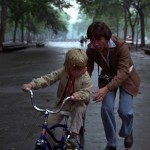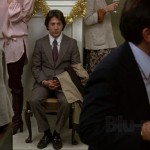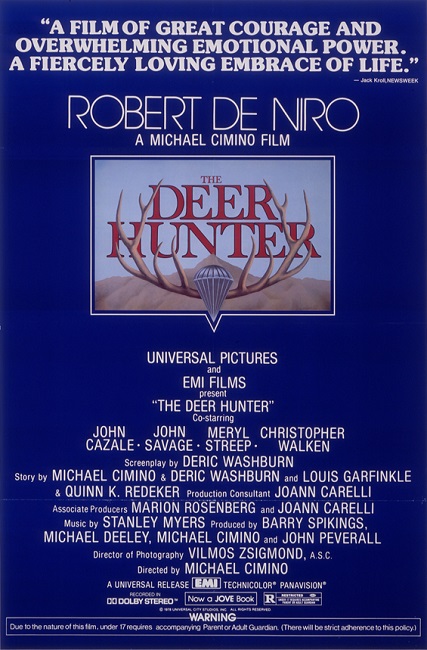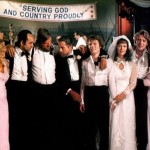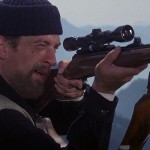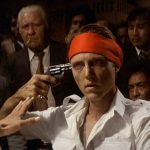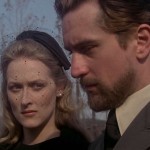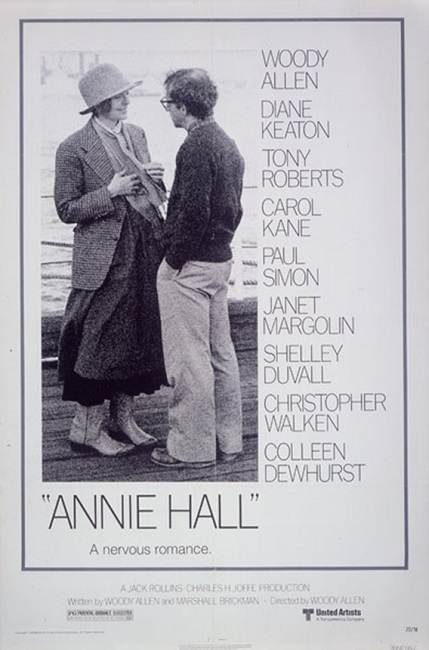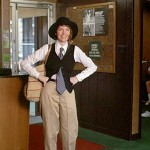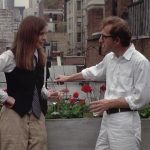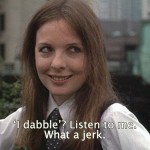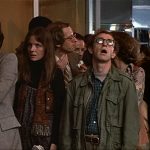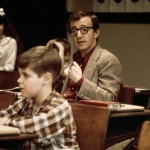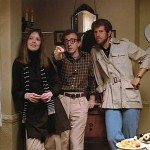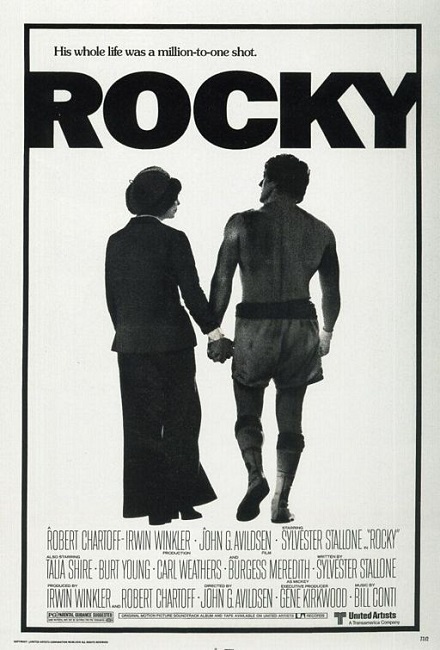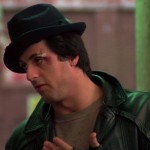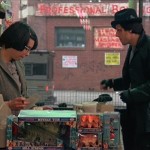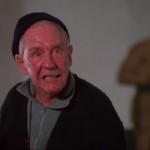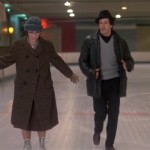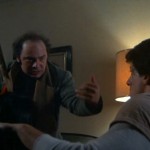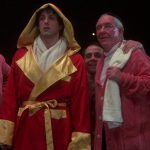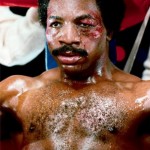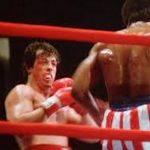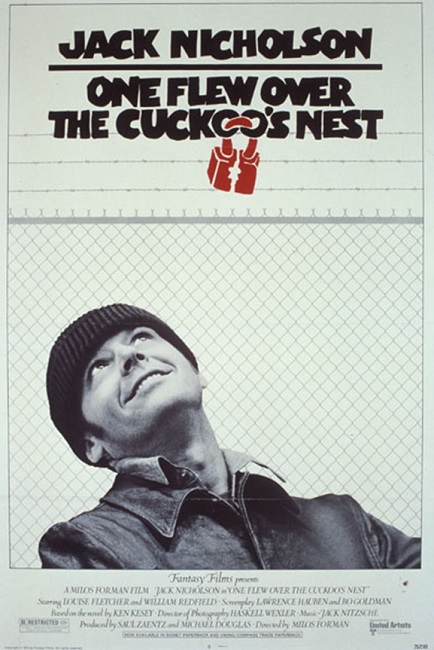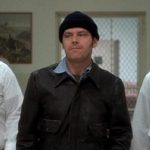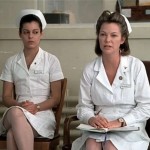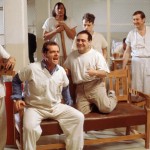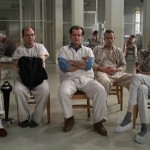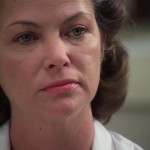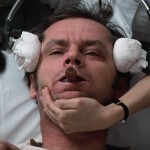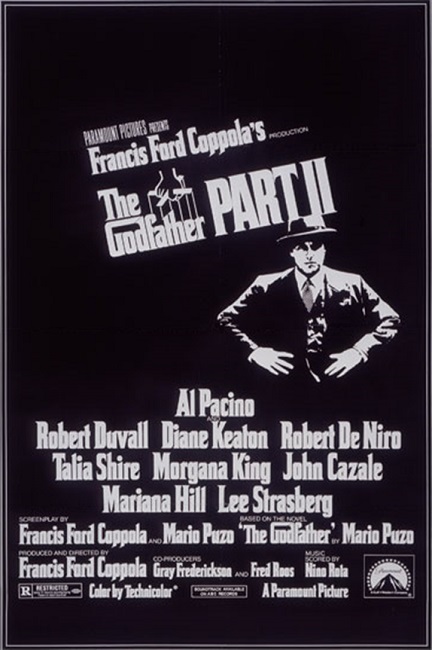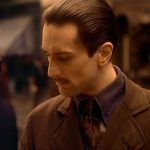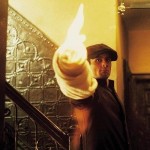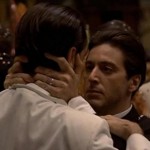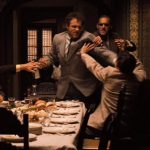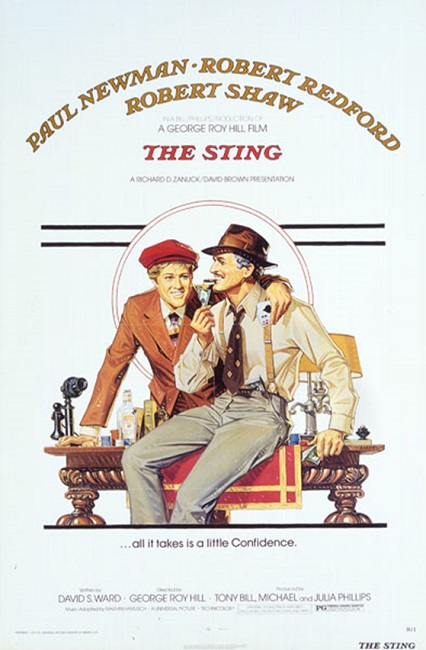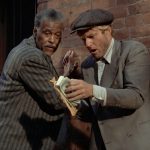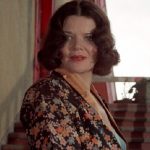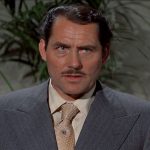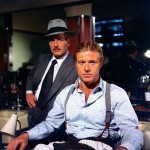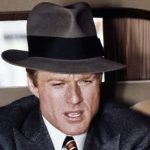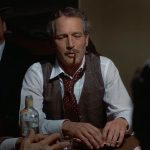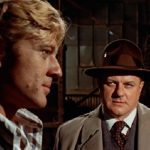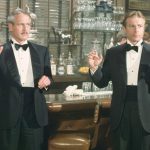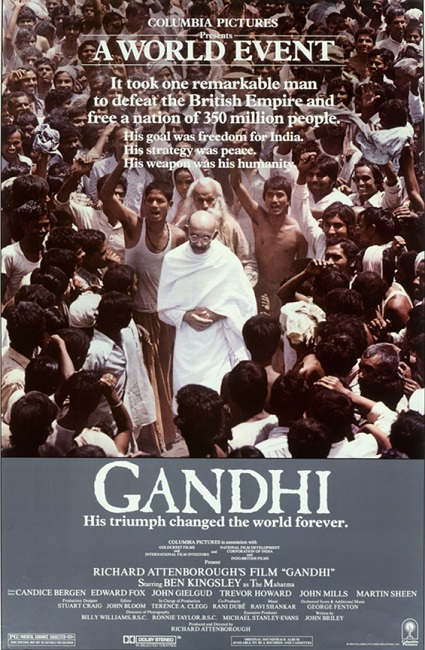
Gandhi – 1982
Gandhi was a wonderful step back into the world of the epic. Films seem to have gotten away from telling epic stories. The last Best Picture winner I can really put into that category was Patton in 1970. The Godfather? Even The Deer Hunter? I don’t think so. Gandhi was really a true epic. The story was told on a grand, world changing scale. The subject matter was a man who changed history. In keeping with the far reaching effects of the man, the movie had lofty and inspiring themes, some amazing cinematography, exotic and yet very appropriate music, and an impressive cast with thousands of extras. The story spanned a 55 year period in history.
Gandhi was, of course, a historical figure, making this film somewhat biographical. But it only covered his life from 1893 to his death in 1948. Gandhi is the man who made the term passive resistance really mean something. He was played by actor Ben Kingsley, who won the Best Actor Award for his portrayal. Kingsley was phenomenal. He is a great actor, but even more than that, he really looked like the real Gandhi.
The film was directed by Richard Attenborough, who also won an Oscar for Best Director. In fact, the film was nominated for 11 Academy Awards, and won 8 of them. Other wins included Best Original Screenplay (John Briley), Best Cinematography (Billy Williams and Ronnie Taylor), Best Art Direction, Best Costume Design and Best Film Editing.
Interesting note: The Academy Award nominated Soundtrack was composed by Ravi Shankar and George Fenton, though they did not win.
Other notable actors in the film were Rohini Hattangadi as Kasturba Gandhi, Gandhi’s wife, Candice Bergen as Margaret Bourke-White, a reporter, Martin Sheen as Vince Walker, a journalist, and Ian Charleson as Reverend Charles Freer Andrews, one of Gandhi’s early supporters and close friend. All of their roles, with the exception of Hattangadi were fairly small, but the actors stood out to me, partly because they were recognizable names that I am familiar with, and because they are good actors.
Interesting note: Another actor had a few minutes of screen-time: Sir John Gielgud. That makes two actors who were in the previous year’s Best Picture winner, Chariots of Fire, that had parts in Gandhi, the other being Ian Charleson.
The first thing about the movie that caught my attention was its beginning. It does something that I have seen other films do and it is an effective tactic to capture the interest of a viewer. They started out with Gandhi’s death. He was assassinated – shot three times at point-blank range. He was able to utter the words “Oh, God!” before falling. Actually, this was spoken in his native language as, “He Ram!” referring to the Hindu god Rama.
Interesting note: The movie actually holds a place in the Guinness Book of World Records for the use of the most extras in any one scene. In the beginning of the film, after Gandhi is killed, 300,000 extras were used during his funeral scene.
Then the film takes us back 55 years to 1893 which was the first event of significance that started to shape the man, Mohandas Karamchand Gandhi into the prominent spiritual and political figure that he would become. He is a lawyer that has studied in London and has purchased a first class ticket on a train in South Africa. He is the victim of extreme prejudice from British citizens who are incensed that an Indian is being allowed to ride in first class, and he is forcibly thrown off the train.
Seeing how horribly Indian people are treated, he begins his protest in a non-violent way by publicly burning his government-issued documents that mark him as a second-class citizen. He encourages others to do the same. He allows himself to be beaten and arrested without fighting back, earning him the respect of his peers. He continues with his campaign and remains true to his non-violent convictions. The more he protests the criminal abuse allowed by the British laws in South Africa, the more followers he attracts.
You see, Gandhi believed so strongly in the rightness of his cause that he was willing to undergo the worst forms of mistreatment without any retaliation. And his reasons for doing so were simple and clear. He knew that violence always begets more violence. Also, that violent retaliation only serves to justify the mistreatment. And finally, that once the world, and more importantly his persecutors, saw how unjustly he was being treated, shame would make them give him, or those who came after him, the fair treatment that every human being deserves.
That is the basis of his non-violent resistance. And I’ll be darned if it didn’t actually work. Eventually the Indians in South Africa were given fairer laws and his following grew even larger on the global scale. But when he returned to India, it was the same story all over again. The Brits were there treating Indians like second-class citizens in their own country. So, he started his campaign all over again.
But this time, he traveled all over the country gaining supporters and adherents. His fame and popularity grew. Eventually, the entire nation was behind him and his peaceful ways. There were a few scenes which were hard to watch. One of which was a scene in which some workers who were being treated unfairly tried to walk away from their jobs in protest. The military began beating them badly to get them to go back to work. But the Indians kept taking the beatings without resisting or fighting back. Row after row of men were beaten with sticks. The sad display went on into the night.
But that was the point. The terrible display garnered world-wide attention and the military eventually had to give in and answer for the unprovoked beatings they administered.
As I had mentioned before, the cinematography for Gandhi was incredible. Attenborough was not afraid to use the wide angle camera shots that gave the viewers a sense of the grand scale of the South African and Indian landscapes. The immense fields, the colorful skies, the vast waters, were all so beautiful to see on the screen. And all the people. The endless sea of people that crowd the streets of India were impressive. It must have been a real challenge to organize and film.
As for Kingsley’s performance, all I can say is that I was thoroughly impressed. He had the look, the accent, the mannerisms, and the disposition of the real Gandhi. In all the Academy Award winning films I have watched so far, this had to be one of the finest performances of all time. He was incredible.
I also have to mention the soundtrack in a little more detail. Ravi Shankar’s music on the sitar gave the film a very obvious Indian flavor and was wonderful to listen to. It was exotic and yet approachable. There was a certain kind of unique magical quality to the music that almost made the life of Gandhi out to be somehow mystical or charmed. And in retrospect, it was. So, well done Ravi!
If I had any complaints at all about the movie, I would mention two things. First, it is a very long movie, coming in at 3 hours and 3 minutes long. Maybe it might have been a little easier to watch if it had been cut down by about 30 minutes or so, though to be honest, I’m not sure what they could have cut. It all seemed to be necessary to the plot and its biographic nature.
The second thing I would complain about is that there was a definite reason why Gandhi was assassinated. But the film never went into that at all. It never explained who killed him and what his reasons were. I think it would have served the movie well to spend at least a few minutes on that. I wanted to know why he was assassinated and so I had to look it up myself.
Apparently, after Gandhi got the British to leave India, there was a terrible division in the newly freed country between the Hindus and the Muslims. The division was so bad that actual fighting broke out and a civil war began. Gandhi was, of course, opposed to the fighting, and so he fasted until the fighting ceased. His fast was so great that he very nearly died. But though Gandhi was a Hindu, he recommended that a Muslim be the first Prime Minister of India, trying to show that the two sides can find peaceful solutions to their differences. Unfortunately, this only worked part-way. The nation was divided into India and Pakistan.
What the movie did not explain was that a dissident named Nathuram Godse, dissatisfied with Gandhi’s choice of Prime Minister and with his non-violent policies shot him for political reasons. A tragedy, to be sure. But I wish the movie would have explained it a bit more than it did. As it was portrayed, his death seemed random and unexplained.
Still, there is no denying that this was a great movie. I liked it more than I thought I would. I really liked the way his passive resistance was portrayed. In the end, the film returned to the inevitable assassination, the funeral, and the public cremation. The influence that Gandhi had on the people of India justified the 300,000 extras who were in that funeral procession scene. The last scene before the credits is a shot of Gandhi’s ashes being scattered over the holy Ganga river.
I like that Gandhi was an epic. He was certainly a historical figure who lived an epic life.
